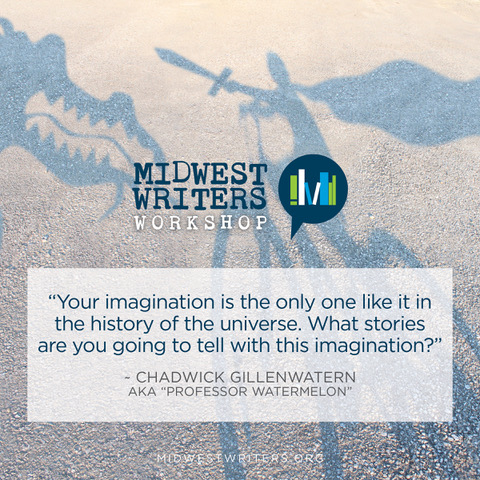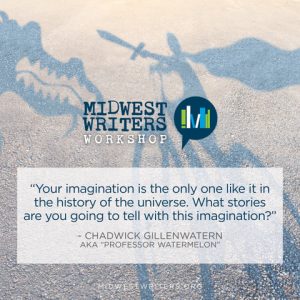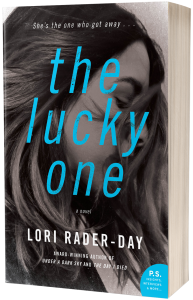Chadwick Gillenwater (also known as Professor Watermelon) is an experienced school librarian, children’s book author and creative writing teacher. Along his journey, he has collected the essential tools to teach his students the elements of writing for children. He knows what makes characters memorable, he understands what makes scenes and settings captivating, and he has discovered what simmers and twists a good plot. As Professor Watermelon, Chadwick has written three middle grade novels. He is President of the Indiana Writers Center, and he lives in Indianapolis with his husband, two dogs and one bearded dragon. www.professorwatermelon.com
MWW board member and publicity chair, Leah Lederman, has interviewed the faculty for MWW21. Today, meet children’s author Chadwick Gillenwater who discusses his writing and what he will present at our virtual summer conference.
Chadwick’s MWW21 sessions:
- “Write Great Read-aloud Picture Books” — As a school librarian and as Professor Watermelon, Chadwick has read thousands and thousands of picture books to children. He has learned what qualities turn a picture book into a read-aloud classic. In this workshop, let Chadwick help you see if your PB manuscript has what it takes to stand the test of time on the library shelf.
- “Write your Children’s Book with all 5 Senses” — Writing with all five senses creates a “literary dream” for young readers. If you write scenes that show what your characters are seeing, hearing, tasting, feeling and smelling, your readers will be pulled into a full sensory experience that will keep them turning pages. In this workshop you will learn techniques on writing with all five senses.
MWW: In your children’s writing workshops, you feature local venues and landscapes as writing fodder. You’ve introduced me to so many wonderful places around Indianapolis this way. How do you find all of these places, and how do you recommend other writers find them for themselves where they live?
CG: I find a lot of interesting places just by asking around. If someone that I know works or volunteers at a place that I think would be a cool setting for a tour and class, I ask them if they can put me in touch with the right person to get the ball rolling. I also look at local online and print publications for interesting features or ads that highlight museums, historical buildings, and other places of interest. And sometimes, I see something just by driving or walking by it. My eyes and ears are always open.
MWW: What’s your favorite takeaway from the session you’ll be teaching? Why do you think this is important for writers to consider in their own work?
CG: My favorite takeaway is that every single person on this planet has a unique imagination. Your imagination is the only one like it in the history of the universe. What stories are you going to tell with this imagination? And where are you going to look for inspiration? I have some tools to give you for that.
MWW: What was an early experience where you learned that language had power?
CG: When I was a freshman in high school, I wrote a short story. I took this story back to my 8th grade language arts teacher and asked her to read it. She did, and she cried at the end. I couldn’t believe that I had written something powerful enough to cause tears. I knew then that words had power and that I liked using the written word to express myself.
MWW: In Walking on Water, Madeleine L’Engle says, “All children are artists, and it is an indictment of our culture that so many of them lose their creativity, their unfettered imaginations, as they grow older.” How do you encourage writers of any age to tap into their curiosity and appreciation of the world around us?
CG: I encourage writers of all ages to be open minded, receptive and aware of their environment. If they do, they will have an endless supply of inspiration for creative endeavors. For example, the next time you take a walk in a park, look at the trees. Imagine what these trees have witnessed though their decades and centuries of life. Imagine if you could sit next one of these trees and listen to its stories. Well, you can. Just take along a notebook, a pencil and your imagination and write down what you hear (wink).
MWW: Can you share details about what you are working on right now?
CG: The project that I’m working on right now isn’t a children’s book, actually. It’s part memoir and part spiritual self-help. In this book I share how I communicate with my dad who died by suicide when I was three. It’s called The Bluebird on Your Shoulder. This book aims to help people maintain, grow and even heal relationships with loved ones who have experienced what is commonly referred to as “death”.
MWW: As a writer, what would you choose as your mascot/avatar?
CG: A happy, friendly, handsome, cute little dragon!




